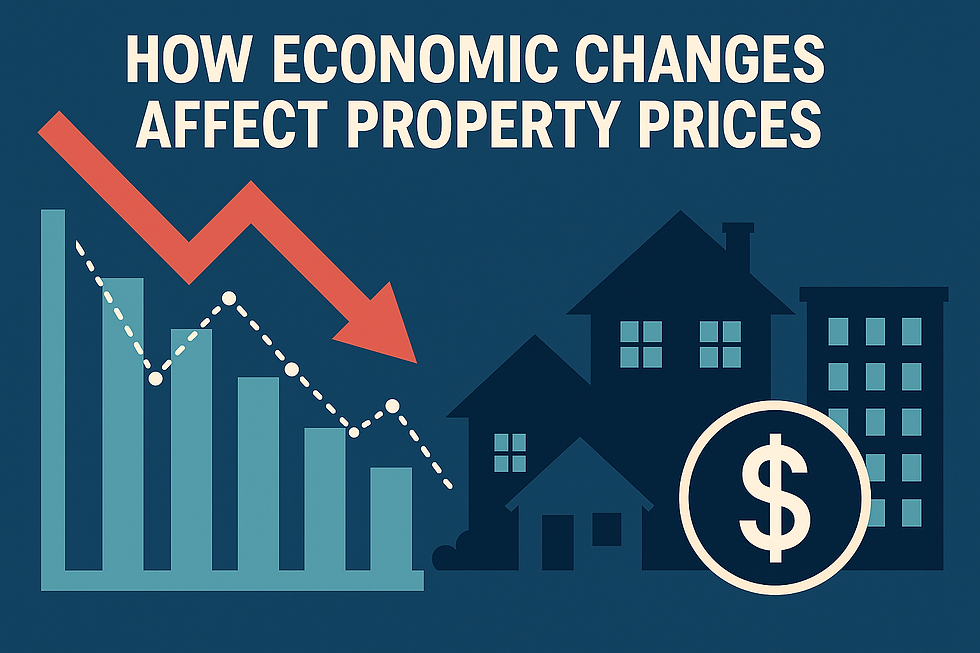What are the Advantages and Disadvantages of Real Estate?
- Digital Transformation
- Sep 24, 2025
- 3 min read


Real estate remains one of the most talked-about investment and business sectors worldwide. Whether you are a first-time homebuyer, a seasoned investor, or someone considering entering the property market, understanding the advantages and disadvantages of real estate is crucial. This topic matters because real estate decisions often involve substantial financial commitments and long-term impacts on personal wealth and lifestyle. Therefore, diving deep into what makes real estate beneficial—and where its challenges lie—can help you make more informed choices.
Advantages of Real Estate
1. Tangible Asset with Intrinsic Value
Real estate is a physical asset, which means it holds intrinsic value and is less likely to become worthless. Unlike stocks or bonds, you can see, touch, and use real estate, providing a sense of security for many investors.
Example: Owning an apartment not only offers potential rental income but also a place to live or lease, making it a dual-purpose asset.
2. Potential for Appreciation
Historically, real estate tends to appreciate over time, meaning its value increases. This long-term growth offers investors a chance for capital gains beyond just revenue from rent or use.
Data point: According to the Federal Reserve, the average annual appreciation rate for residential real estate in the US is about 3-4%, though this varies by location and market conditions.
3. Income Generation Through Rentals
Many real estate investors build wealth by leasing properties. Rental income can provide a steady cash flow source that supplements or replaces traditional wages.
Real-world example: In cities with high demand like New York or London, rental yields can range from 3-7% annually, delivering reliable monthly income streams.
4. Tax Advantages
Real estate offers various tax benefits, such as deductions for mortgage interest, property taxes, depreciation, and operational expenses, helping reduce overall taxable income.
Tax break highlight: Many countries encourage homeownership and real estate investment with favorable tax regimes, which can improve an investor’s net returns.
5. Leverage and Financing Opportunities
Real estate allows for leverage, meaning you can borrow a significant portion of the purchase price and only invest a fraction of your own money. This amplifies potential returns, especially in rising markets.
Example: Using a 20% down payment, you control 100% of a property that might increase in value, magnifying gains compared to investing the same capital in stocks without leverage.
Disadvantages of Real Estate
1. High Initial Capital Requirement
One of the most significant barriers to real estate investment is the substantial upfront capital needed to purchase a property, which may include down payments, closing costs, inspections, and repairs.
This can limit access for those without sufficient savings or access to credit.
2. Illiquidity
Real estate is not a liquid asset like stocks or bonds. Selling a property takes time, often weeks or months, and can involve substantial transaction fees, making it hard to quickly convert to cash.
Real-world scenario: If an investor needs emergency funds, selling a home or commercial property in a slumping market might force losses or delays.
3. Ongoing Costs and Management Burden
Owning real estate involves regular expenses such as taxes, insurance, maintenance, and repairs. If you rent the property, managing tenants, legal compliance, and potential vacancies add complexity and effort.
For example, landlords frequently deal with tenant turnover, evictions, or unexpected structural repairs that eat into profits.
4. Market Fluctuations and Economic Risks
Although real estate often appreciates, it is subject to market cycles. Economic downturns, interest rate hikes, or localized issues like zoning changes can negatively impact property values.
The 2008 global financial crisis is an example where many property owners saw their investments drop dramatically in value, highlighting sector vulnerability.
5. Location Dependency
Real estate value and potential returns depend heavily on location quality, which involves factors like neighborhood safety, infrastructure, schools, and future development prospects.
Poor location choices can lead to stagnation or decline in property value, regardless of broader market trends.
Balancing the Pros and Cons
Real estate is a unique asset class blending tangible value, income potential, and tax benefits with risks such as illiquidity, high upfront costs, and market sensitivity. Successful real estate investors often mitigate disadvantages by thorough research, diversification, and professional guidance.
Conclusion
Real estate offers compelling advantages as a tangible, income-generating, and potentially appreciating investment. However, it requires significant capital, careful management, and an understanding of market dynamics to avoid pitfalls. For many, the appeal lies in its balance between stability and growth, but investors and homeowners alike must weigh the pros and cons based on their financial goals, risk tolerance, and lifestyle. Whether you aim to buy a home or grow a rental portfolio, real estate demands both strategy and patience, rewarding those who approach it thoughtfully with lasting value and opportunity.
What aspects of real estate interest you most—investment, homeownership, or commercial opportunities? Understanding your priorities can further guide your decisions in this dynamic field.



Comments